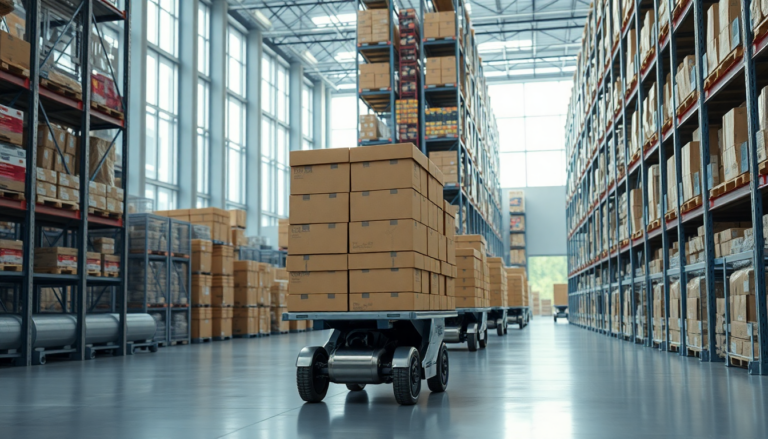Argomenti trattati
In recent years, the integration of artificial intelligence into logistics has truly revolutionized operational efficiency. Just look at how companies like Amazon are leading the charge, harnessing generative AI models to optimize warehouse processes and boost delivery capabilities. With the rollout of their one millionth robot, Amazon is not just upping its tech game; it’s also transforming the landscape of the workforce. What does this mean for the future of jobs in logistics?
The Rise of AI-Driven Logistics
Amazon has unveiled its groundbreaking generative AI model, known as DeepFleet, which aims to enhance the efficiency of its robotic fleet by an impressive 10%. But this isn’t just about numbers; such an improvement translates into significant savings and faster delivery times, critical elements in an industry where speed and cost-efficiency are everything. The way DeepFleet orchestrates the movement of robots is akin to a high-tech traffic management system, optimizing routes as if navigating through urban congestion. Can you imagine the impact of that on your next online order?
The implications of this technology are staggering, especially when considering that Amazon might soon deploy more robots than human workers in its warehouses. Currently, about 1.56 million employees are part of the workforce, primarily in warehouse roles. However, as robots increasingly take on tasks like picking orders and sorting items, we’re witnessing a significant shift in operational dynamics. While this shift could raise eyebrows concerning job displacement, Amazon insists it’s more about workforce development than reduction.
A New Era of Workforce Dynamics
Amid these advancements in automation, Amazon is doubling down on its commitment to upskill its workforce. Approximately 700,000 employees have already been trained to adapt to emerging technologies, enabling them to transition into roles that demand more technical expertise. This evolution isn’t just about cutting labor costs; it’s about redefining job roles and creating new opportunities within the company. As robots handle more repetitive tasks, human workers can engage with more complex challenges, enhancing their skills and earning potential. Isn’t it exciting to think about the new possibilities this opens up?
The future of warehouse automation looks bright as Amazon continues to explore cutting-edge advancements in robotics. Picture a time when robots could respond to verbal commands from employees, further augmenting human capabilities and fostering a collaborative work environment. Additionally, prototypes of humanoid robots are in the works, hinting at even more sophisticated interactions between technology and personnel. How might that change our daily work lives?
The Broader Implications of AI in Logistics
The development of generative AI like DeepFleet signals a broader trend in logistics and supply chain management. Companies across various industries are increasingly recognizing the power of AI to boost efficiency and cut operational costs. By enhancing the speed and accuracy of warehouse operations, businesses can better meet the growing consumer demand for rapid delivery services. Who wouldn’t appreciate a faster delivery time?
Moreover, integrating AI into logistics can pave the way for more sustainable practices. With optimized routes and reduced operational redundancies, companies can lessen their carbon footprint while still upholding high service standards. As the industry evolves, the intersection of AI and logistics offers a unique opportunity for innovation and growth. Are we ready to embrace this change?
In conclusion, the rise of generative AI in the logistics sector is more than just a technological leap; it’s a transformative movement reshaping how businesses operate and engage with their workforce. As leaders like Amazon spearhead this evolution, the future of logistics will likely be characterized by enhanced efficiency, workforce adaptation, and sustainability. What role do you think AI will play in your next delivery experience?

